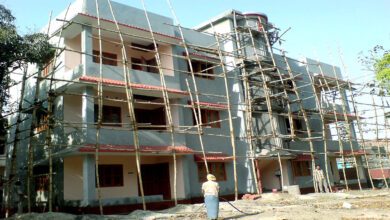Indian refineries have adopted modern technologies for production of petroleum products and continuously upgrade the technologies in line with their requirements and international trends. Apart from primary processing technologies, viz., Crude Oil Fractionation by Atmospheric Distillation and Vacuum Distillation for initial separation, the major modern process technologies employed by Public Sector Undertaking (PSU) refineries for producing petroleum products include:
1. Secondary/Upgradation Technologies for yield improvement:
• Thermal cracking processes, viz., Visbreaking, Delayed Coking.
• Fluidised Catalytic Cracking, INDMAX Technology.
• Hydrocracking.
2. Quality Upgradation Technologies:
• Catalytic Reforming, Isomerisation, Alkylation, Prime G for meeting the quality specifications of Petrol w.r.t. octane number, benzene content, aromatics, olefins, sulphur, distillation etc.
• Diesel Hydro-desulphurisation (DHDS), Diesel Hydro-treating (DHDT) for diesel for reduction of sulphur & PAH (Poly Aromatic Hydrocarbons) and cetane number improvement.
Indian Refineries are mainly dependent on imported crude which results in higher freight cost and further cost is involved during inland transportation to refinery including inventory cost. To reduce logistic cost, refineries have developed facilities at port location for receipt of imported crude. The landlocked refineries have developed cross-country pipelines for receipt of crude oil from port and supply of petroleum products. Oil refineries have taken steps to improve the overall efficiency through use of latest generation catalysts, instrumentation and control system. Adoption of modern technologies, performance improvement programme and energy consumption measures have helped Indian refineries in increasing distillate yield and reduction of specific energy consumption. The refineries have continuously benchmarked with global refineries to improve performance and reduce operation cost and energy consumption.












